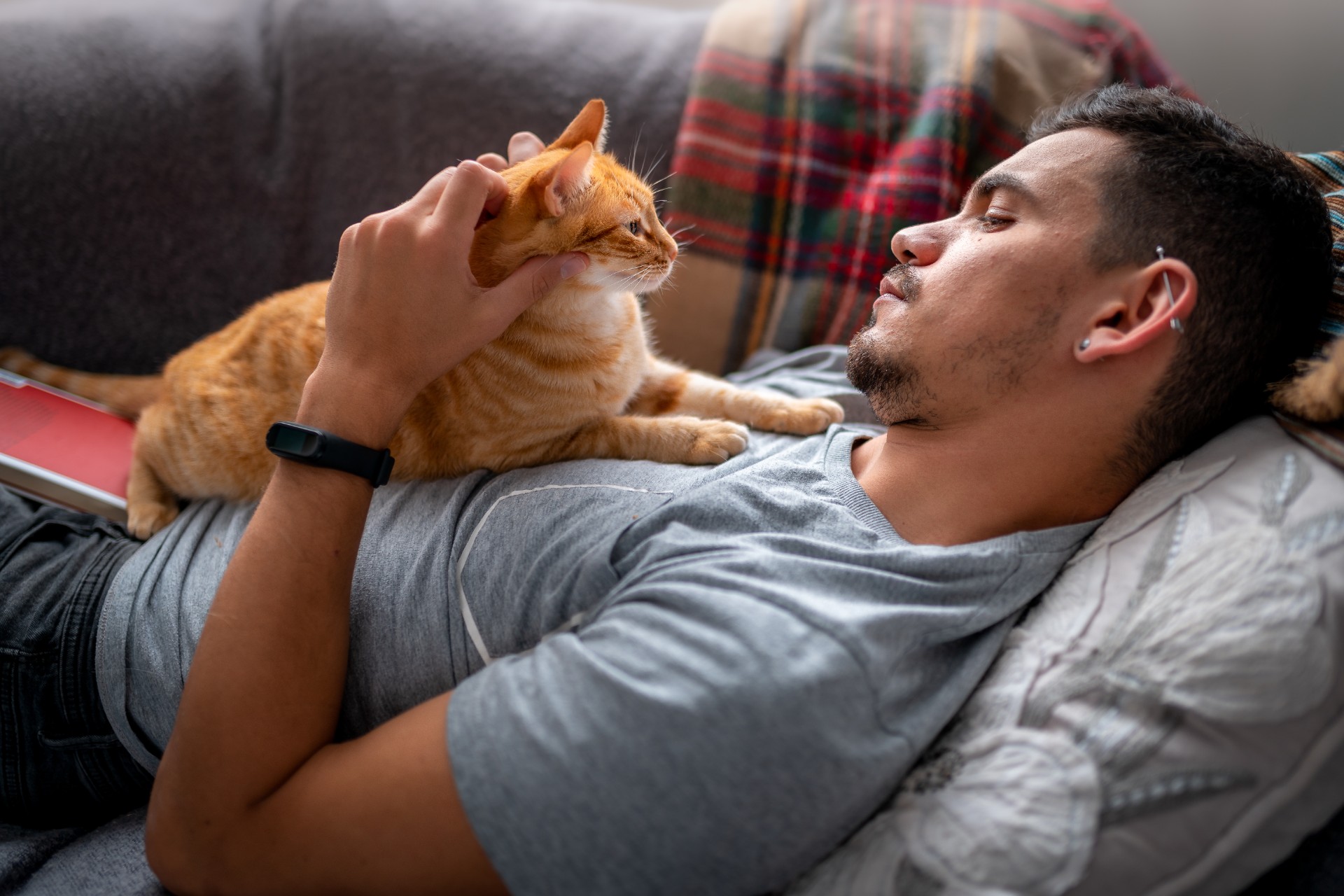We often see cats who have a fondness to lie on top of their owner and purr themselves to sleep. With years of experience with cats, we know that they lie on people they trust and don’t feel vulnerable. After extensive research, today we will address the question many cat owners and cat lovers ask — why cats lie on people.
Do cats really love to lie on people?

If you are a cat owner, you must have experienced that your furry friend minds their own business all day, but they suddenly they come lie on your lap or chest and purr. Your little explorer might lie on you for hours if nothing more interesting catches their eye.
A cat sleeps around 16 hours a day, and they feel most vulnerable during their sleep. So, if a cat sleeps on top of you, it means they truly trust you and expect nothing to go wrong. There is no better compliment than your furry friend choosing your lap as their preferred resting spot.
However, a cat won’t lie on you if you place them forcefully on your lap; they make their own decisions. So if they lie on you, it means that you are special. Make sure you give them plenty of affection and warmth.
Reasons why cats love to lie on people
While it’s no secret that your kitty loves to lie on you, you might be eager to know the reason why they prefer you, and there are numerous ones. Let’s look at some:
- They’re seeking warmth. Regardless of the weather, cats love to sleep and rest in warm places. They love to lie on you because they enjoy your body heat. The majority of your body heat is released through your lap and chest, so they like to lie and fall asleep in these spots. In the interim, your bed is a delicate, agreeable spot for your pet to lie while resting.
- They want to bond. Cats aren’t very expressive of their love toward you. However, by lying on you, your furry friend might be trying to tell that they love you. They are bonding with you.
- Marking territory. We all know that humans don’t select a cat, a cat selects its human. Cats like to leave their scent in their territory to recognize it later, and by lying on you, they might be trying to mark you as theirs.
- They enjoy your company. At some point, we have all experienced that our cats lie on our lap while we talk with other people. Your cat refers enjoying your company and voice. Also, the sound of your body might be alleviating to your fur baby when your pet dozes on you.
- Your cat loves you. You might be working just like most people. At the point when you’ve finished your workday, all your cat wants is to be close by and chase after you until you sit so that they can lie on you. Why? Because your fur baby loves you.
Why do cats purr when they lie on you?
Have you realized your fur baby purrs when they lie on you? Well, a cat purrs to express happiness. Cats not only purr when they feel happy, they also purr when they feel relaxed, and by purring they send a wave of calmness. So when your kitty purrs in your lap, they feel secure, relaxed, and express their love for you.
Does it mean they are scared?
When cats lie on you, it doesn’t necessarily mean that they are scared of something. However, they do so to feel more secure and safe. Cats don’t lie on people they don’t trust and feel secure being near them. Believe it or not, cats blindly trust its humans and lie on them when they are scared – they find the lap the safest place in the house. They have nothing to be afraid of when their most-loved individual is there, so your feline sleeps soundly when there’s nothing to fear.

So do cats love to lie on people? Absolutely! Your little mischief-maker might ignore you all day, but at the end of it, your lap the best spot to lie on. Your fur baby will purr out of affection and love for you.


